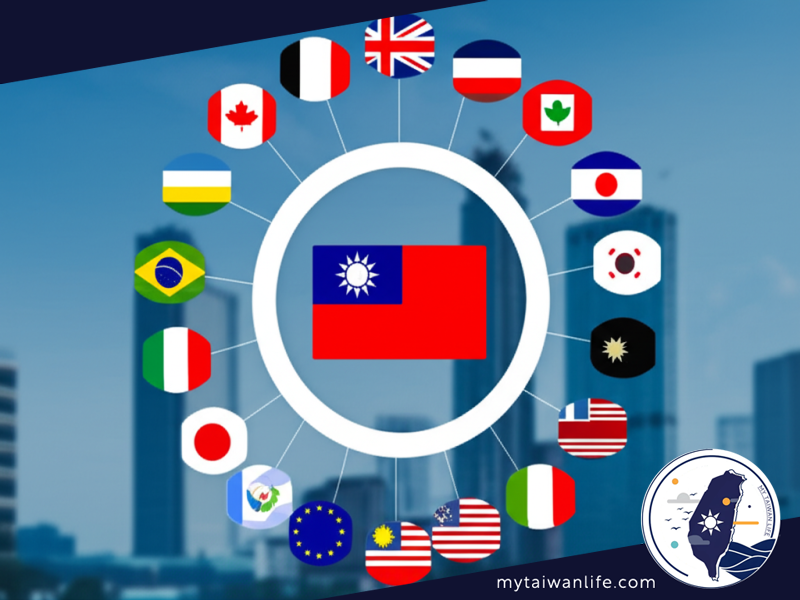Taiwan's Strategic Pivot: Strengthening Ties with Global Democracies Beyond the US
Navigating Geopolitical Uncertainties and Building Resilience in a Changing World

Taipei, May 12 - A leading scholar from the United Kingdom is urging Taiwan to broaden its horizons. Robin Niblett, a former distinguished fellow at Chatham House in London, speaking at a forum in Taipei, recommends strengthening economic and trade relations with major global powers beyond the United States.
Niblett's remarks come amidst growing uncertainties regarding a potential second term for Donald Trump. His observations, drawn from his book "The New Cold War: How the Contest Between the U.S. and China Will Shape Our Century," highlight the potential for turmoil in the Asia-Pacific region, including Taiwan.
Niblett explained the complex dynamics of the ongoing "New Cold War" between the United States and China. He noted that the geopolitical situation places Taiwan at the center of the First Island Chain, a critical barrier against China's expansion.
He pointed out the differing strategic goals of the two major powers: America aims to curtail China's military and economic growth, while China seeks economic dominance as a leading exporter and aims to move beyond the First Island Chain.
Niblett believes that, in this context, "Beijing believes that Taiwan, in a way, is being used as a kind of missile of democracy... against the Chinese Communist Party." He emphasizes that Taiwan is therefore a key player in the geopolitical and ideological contest between the US and China.
The scholar highlighted a key difference between Donald Trump and Joe Biden: Trump's skepticism towards alliances. Niblett contends that Trump views allies as opportunities for exploitation, particularly given the US's economic and security influence.
This shift in approach, according to Niblett, creates significant risks for US allies worldwide, particularly in the Asia-Pacific region, including Taiwan.
Given these uncertainties, Niblett advocates for Taiwan to pursue deeper ties with G7-plus countries, expanding its relationships beyond the US.
He emphasizes that "Taiwan's future lies with the other liberal democracies that rely on America for their security." He urges Taiwan to prioritize developing stronger economic and business partnerships with countries like the EU, UK, Canada, Japan, and Australia.
These remarks were made during the annual forum organized by the Center for Asia-Pacific Resilience and Innovation (CAPRI). The forum, focused on "Building Resilience on Shaky Ground in the Asia Pacific," aimed to explore strategies for building more resilient societies.
Other Versions
Error: All DeepL API keys exceeded 95% usage.
Error: All DeepL API keys exceeded 95% usage.
Error: All DeepL API keys exceeded 95% usage.
Error: All DeepL API keys exceeded 95% usage.
Error: All DeepL API keys exceeded 95% usage.
Error: All DeepL API keys exceeded 95% usage.
Strategic Pivot ng Taiwan: Pagpapalakas ng Ugnayan sa mga Global Democracies Bukod sa US
Error: All DeepL API keys exceeded 95% usage.
จุดเปลี่ยนเชิงยุทธศาสตร์ของไต้หวัน: การกระชับความสัมพันธ์กับประชาธิปไตยทั่วโลกนอกเหนือ�
Sự Chuyển Hướng Chiến Lược của Đài Loan: Tăng Cường Quan Hệ với Các Nền Dân Chủ Toàn Cầu Ngoài Hoa Kỳ

